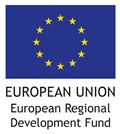Reducing the amount of waste that your business produces can have a huge environmental impact. It can also reduce costs as disposing of rubbish can be expensive. Visitors and staff want to see that you are actively minimising your waste and that you are helping to signpost them in the right direction too.
There are three steps to waste management and reduction:
- Measure
- Commit
- Act
Measure
Carry out a waste audit. You can do this by separating out rubbish into different categories e.g. cardboard, plastic, glass, etc., and weighing it. For larger companies, you may want to hire an external consultant to help you. If you have a waste collection service contractor, they may be able to provide you with useful measurement information.
Commit
Once you have an idea about your current waste, you can commit to reductions. Set yourself targets and be transparent about your commitment on your website. As part of its Sustainable Tourism Action Plan, Visit Kent is asking all tourism businesses to make a commitment to waste reduction by 2025.
Act
The following tips and information are to help you on your waste reduction journey. You’ll also find a separate, dedicated page here on reducing and managing food waste.
Prevent it!
The most effective way to reduce waste is to not buy it in the first place. This is not always possible of course, but there are some simple steps you can take to avoid and prevent having to deal with excess waste.
-
Plastics
- Avoid buying items that use single use plastic: This can still be tricky to navigate, especially in the hospitality sector. Here are some ideas to get you started:
- Plastic food utensils and accompaniments: Avoid plastic cutlery, plates and bowls; plastic straws; plastic stirrers; cling film; plastic sachets of sauces, coffee or sugar. Many of these items will in fact be banned by law in the UK from October 2023.
- Mini plastic toiletries: If you run an accommodation business, avoid miniature toiletries as much as possible, as well as plastic shower caps, toothbrushes and combs. Consider offering refillable toiletries, using locally made soaps and shampoos.
- Plastic packaging of food and cleaning products: Adjust the way you purchase wherever possible and use refillable or zero waste products. Buying products in bulk will also reduce the overall packaging and cost. Download the Refill App to find local refill stations near you.
- Plastic bags: Avoid using plastic bags and encourage your visitors to use reusable shopping bags.
- Plastic bottles: Encourage guests to refill bottles or offer jugs of water rather than offering or selling plastic bottles of water. Sign up to the Refill App alerting visitors that you offer free water refills – you’ll also receive a sticker to display in your window.
- Supply chains: Ask suppliers what they are doing to reduce their plastic use.
-
Paper
If you haven’t already, you should be reducing the amount of paper you use in the office. Eliminate printing wherever possible and avoid printed glossy brochures. Embrace digital marketing!
-
Textiles
Choose textiles made from sustainable fibres and fabrics: These reduce carbon, water and waste footprints and are often longer-lasting and more durable too, helping to save money in the long run.
Reuse it!
Consider reusing items as much as possible.
-
Fix it
Do you need to replace an item? Could it last for longer or could it be fixed? Look out for local repair cafes and take your old items along to be mended.
-
Upcycle it
Consider upcycling – this is where you take an item previously meant for another use and make some adjustments so it can be used differently and given a new lease of life. Creative examples include old butler sinks and wellington boots used as hotel garden planters, old sheets and duvets turned into B&B tablecloths or cushion covers.
-
Donate
Donate items that you no longer need to local charities or charity shops.
Recycle it!
Once you’ve done all you can to avoid waste, you need to ensure that all remaining rubbish is disposed of in a way that is as environmentally friendly as possible.
Here are some tips to help:
-
Recycle bins
Ensure you have clearly labelled, colour coded recycling bins, separated out for staff and visitors which are easy to find.
-
District
Find out what can and can’t be recycled by your local district or borough council here. Learn how to better decipher recycling symbols here.
-
Inkjet cartridges, batteries and light bulbs
Can be collected and recycled.
-
Flexible plastic packaging recycling points
Some types of plastic such as crisp packets and plastic bread bags cannot be taken for recycling. However, some supermarkets are now able to collect and recycle these.
Dispose of it
The final option is for waste to go to landfill or incineration. This is the fate for less than 1% of Kent’s total waste.
Further Information
- UK government’s information on business waste and environmental impact
- Federation of Small Businesses (FSB)
- Kent County Council – waste guidance, rubbish and recycling and local and district council policies
- WRAP - Eliminating problem plastics
- Zero Carbon Business - reduce waste and recycle more
- Recycle Now
- Recycle Your Electricals
- PlasTICK – an initiative from the social enterprise Common Seas which helps hospitality businesses reduce their plastic use by measuring their plastic footprint, identifying solutions and tracking their progress against the goals of the Global Tourism Plastics Initiative (GTPI) by the World Tourism Organization (UNWTO).
- Refill App
- Repair cafes
Read more tips and information on how to become a more sustainable business in our Impacts Resources Hub.
Read inspiring stories from our Impact Heroes where we detail exciting organisations that have taken action on sustainability.
If you have taken action to be more sustainable in your business, we’d love to hear more. Please get in touch with enquiries@visitkent.co.uk



